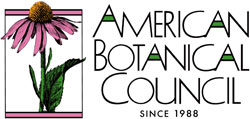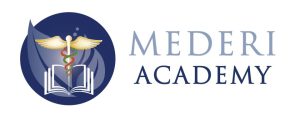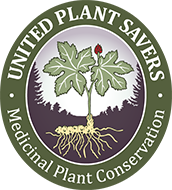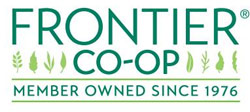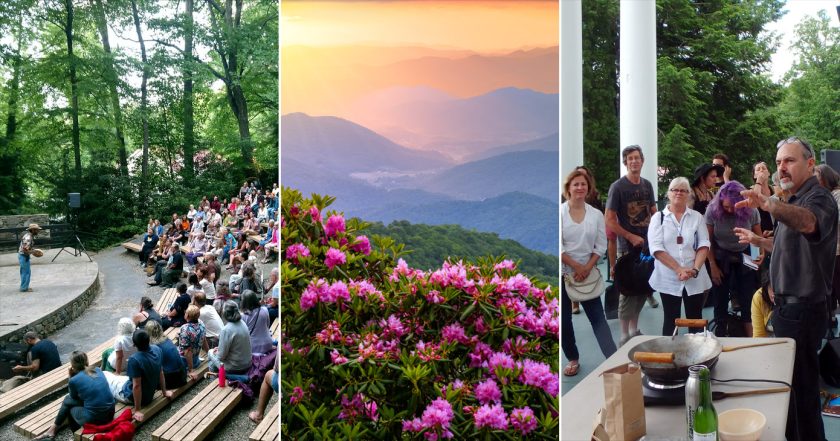
Past Conference
Video and audio from this event are now available! Full CE details.
We are delighted to welcome you back in person to the Medicines from the Earth Herb Symposium at Blue Ridge Assembly in Black Mountain, North Carolina!
Our new symposium schedule starts Friday, May 17 at 6:30 PM and the event concludes on Sunday, May 19 at 5:40 PM.
Page Directory
Dates: May 17 – 19, 2024
Symposium Highlights:
Over 30 presentations to choose from including:
- Herb walks
- Clinical lectures
- Medicine-making demonstrations
- Friday Keynote with Mary Bove, ND
- Friday Field Study with David Winston, RH (AHG)
- Pre-symposium Intensive with Donald Yance, CN, RH (AHG)
- Post-symposium Online Intensive with Eric Yarnell, ND, RH (AHG)
- Plus a dynamic exhibit hall in the main lobby: education, herbal products, books and more!
See speakers and topics below.
Those who attend the symposium in person receive:
- Attendance at live lectures May 17 – 19 (Intensives are extra)
- Streaming of all videos made at the symposium for 6 months (except outdoor workshops, which won’t be recorded)
- Full set of audio recordings to own
- Digital lecture notes to own
Picture quiet mountain nights, rocking on the front porch, seeing old friends around the fire, lots of herb walks and other outdoor activities, exploring the trails on 1200 acres of woodland, and so much more. We can’t wait to have you back!
Registration: $399 by February 27; $479 by April 2 and $529 after that date. Includes all lectures May 17 – 19. Extra fees for intensives, CE, meals, and lodging.
NEW Online Option: For those who aren’t able to attend in person, join us live on Zoom, plus receive all audio recordings, streaming video for 6 months and the digital book. Online cost: $399. Intensives and continuing education are extra. Full details.
Student Discounts: Students receive $180 off registration pricing. Please contact us for the discount code.
Cancellations: By May 3, registration fees will be refunded minus $50 processing per registrant. No refunds can be given after 5/3/24. Refund requests should be emailed to the conference office.
Scholarships: In recognition of the need for diversity in the fields of clinical herbalism and naturopathic medicine, the conference is offering a limited number of full scholarships to persons of color (Black, Indigenous, Hispanic/Latino, and Asian-American) who are not yet practitioners and would like to further their education in the clinical uses of botanical medicine. Details. The scholarship program is now closed. Congratulations to this year’s recipients!
At Herbal Educational Services we Cultivate Diversity, Equity, and Inclusion
We recognize the need for increased diversity in the fields of clinical herbalism and natural medicine and are committed to creating a welcoming environment at our events that affords dignity to all.
Work Study Program
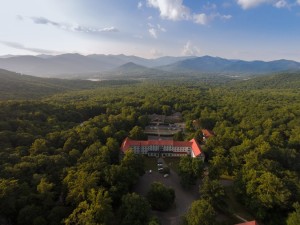 Accommodations
Accommodations
Blue Ridge Assembly
84 Blue Ridge Circle
Black Mountain, North Carolina
NOTE: Lodging reservations close May 9. Please reserve your lodging at Blue Ridge Assembly prior to then!
The symposium site is nestled on a mountainside surrounded by 1200 forested acres with two rushing streams. Lodging, dining and lectures are all within walking distance. Blue Ridge Assembly is 40 minutes east of Asheville, NC.
The symposium begins at 6:30 PM on Friday May 17 and the event concludes on Sunday, May 19 at 5:40 PM
All-inclusive lodging and meal packages start at $182 total for two nights’ lodging and six meals. Commuter meals are also available for $101 for the weekend.
Register for lodging and meals online. Blue Ridge does not take reservations by phone. You may also fill out this form and mail or email it to them.
Keynote Address with Mary Bove, ND
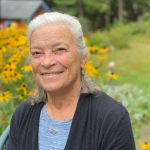
On Friday, May 17 at 8 PM, Mary Bove, beloved midwife, medical herbalist and doctor shares stories, lessons and herbal insights from a life entwined with herbs.
Open to all attendees.
Inspired by Herbs: The Herbal Journey of a Modern Day Herbalist
“At a young age I heard a calling and felt a bond with plants, particularly herbs. They showed up in many places sneaking into my life in a quiet silence.” — Mary Bove
Pre-Symposium Intensive with Donald Yance, CN, RH (AHG)
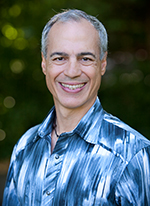
Title: Optimizing Physical Performance and Recovery with Botanicals
Date: Friday, May 17, 2024
Time: 1 – 5:15 PM
Place: Blue Ridge Assembly in Black Mountain, NC
Cost: $89
Open only to registered conference participants.
Continuing Education: 4 hours approved for acupuncturists, naturopathic physicians, nursing professionals, MDs and DOs
Description: This intensive gives us wide ranging insights into the specific herbs, botanical formulas and nutritional compounds that can:
- Enhance and sustain energy and endurance and reduce fatigue
- Manage anabolic states to gain lean muscle and reduce body fat.
- Shorten recovery and reduce the buildup of toxic waste substances, inflammation, and the oxidative stress.
- Improve overall health and well being, giving support to the heart, liver, kidneys, immune and digestive systems.
- Aid in stress resistance and build stress defense. Stress is a major contributor to diminished performance and injury.
- Reduce risk of injury, muscle fatigue and cramping and maintain high performance with age.
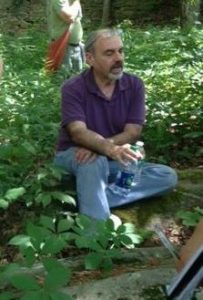
Friday Field Study with David Winston, RH (AHG)
Sorry, this event is now FULL!
Title: Ethnobotanical and Native Plant Field Study
Date: Friday, May 17, 2024
Time: 10 AM – 3 PM
Cost: $79
Location: Blue Ridge Assembly
Open only to registered symposium participants. 35 person limit.
Continuing Education: 5 hours approved for acupuncturists. Sorry, OBNM and AAFP does not provide credit for for herb walks.
Description: Join this perennial outdoor favorite for a day with David Winston. Examine the unique flora of the southeastern mountains and hear stories of creation and the origin of medicine. Discover how the medicine, food and useful materials provided by the plants have nurtured the Native peoples and Appalachian settlers for millennia. Explore the healing power of the herbs, the water, the earth, the trees, and how you can make them a part of your life. This event fills every year, so please register early! Limit 35 participants.
Friday Mountain Gardens Tour
We’re sorry, this session has been canceled.
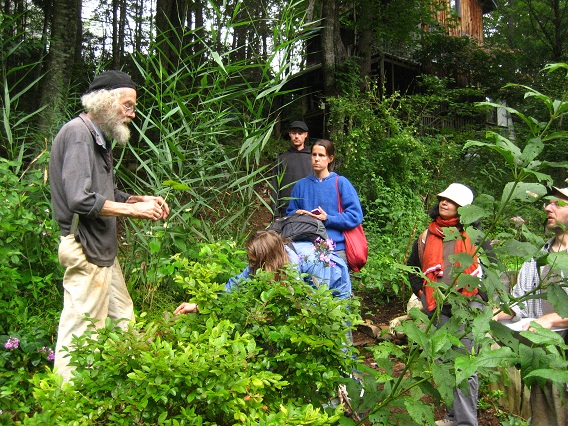
Title: Ecology, Propagation, and Cultivation of Native and Oriental Medicinal Herbs
Date: Friday, May 17, 2024
Time: 1 PM – 5 PM
Cost: $69
Location: Mountain Gardens in Burnsville, NC (an hour from Black Mountain)
Open only to registered symposium participants. 20 person limit.
Continuing Education: 4 hours credit for acupuncturists.
Description: As many of you may know, the beloved founder of Mountain Gardens, Joe Hollis, passed on a few months ago. For more on Joe read this tribute.
Mountain Gardens is a forty-year-old botanical garden of useful plants incorporating the largest collection of medicinal herbs in the eastern US. The Mountain Gardens staff teach the techniques of cultivation and propagation that Joe Hollis honed for over 40 years. More on Mountain Gardens here.
Post-Symposium Intensive with Eric Yarnell, ND, RH (AHG)
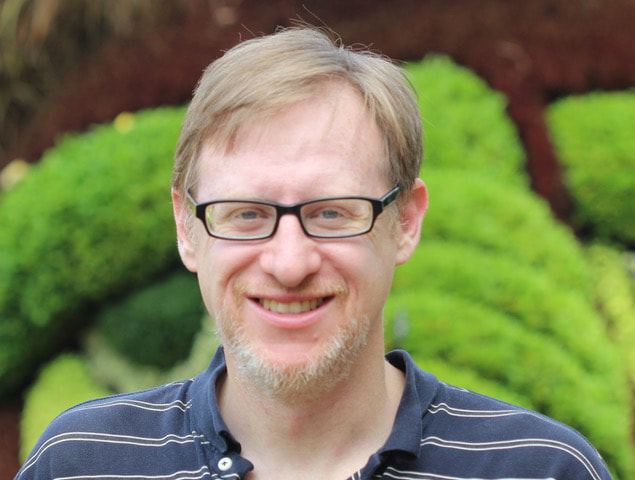
Title: Natural Treatment of Prostate Conditions: Blending Western Herbal Practice, Traditional Chinese Medicine, and Pharmacy
Date: Starting Sunday, May 19, 2024
Time: On demand streaming video
Place: Available on any internet-connected device
Cost: $89
Open only to registered conference participants.
Continuing Education: 4 hours approved for naturopathic physicians, acupuncturists, nursing and other health professionals
Description: Prostate problems are extremely common and highly amenable to natural prevention and treatment.
- Benign prostatic hyperplasia (BPH) is experienced by the majority of men to varying degrees. We discuss how to assess the severity and type of BPH, choosing the most appropriate therapeutics, including when it is necessary to use drugs or refer for surgery (including what types of surgery are best).
- Chronic prostatitis and pelvic pain are also extremely common, but little discussed. We review various theories of how these conditions arise, and especially debunk the widespread belief that infections always underlie this condition.
- We will then review prostate cancer. We start with a condition that doesn’t really have a name but is currently mislabeled as low-grade, localized prostate cancer. This unnamed condition especially will be addressed with an eye toward avoiding the vast overtreatment that currently occurs in conventional medicine. Next we delve into established prostate cancer and the power of a combination of natural and conventional therapies, including the many new conventional options for focal (vs. prostate- or even pelvis-wide) treatment.
- Finally we discuss issues around the prostate in trans feminine people who still have prostates.
- Case studies are used as illustrations throughout.
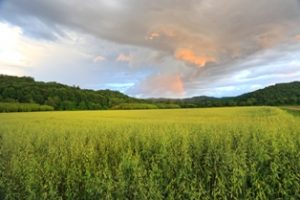
Monday Gaia Herbs Farm Tour
Date: Monday, May 20, 2024
Time: 9:00 AM – 1:00 PM
Location: Gaia Herbs Farm
101 Gaia Herbs Drive, Brevard, NC 28712
Hosts: Susan Hirsch, Gaia Herbs Formulation Manager and Kate Renner, Gaia Herbs Director of Farm Operations
Cost: Free
Open only to registered conference participants. 40 person limit; first come, first serve.
Join us for a special post-conference tour of the Gaia Herbs Farm! Located in Brevard, NC, Gaia Herbs’ Regenerative Organic CertifiedTM Farm is home to 350 beautiful acres of farmland, greenhouses, and production facilities. Come explore the Farm with our Operations Director and Formulation Manager for an overview of our growing and herbal practices.
We will wrap up the tour at our historic farm house. Guests are welcome to bring a picnic lunch and stay to enjoy the memorable view and verdant scenery from the farm house patio.
Continuing Education Information
- Please sign up for CE when you submit your registration form ($29 additional fee for all CE).
- We offer CE, CME, CNE, PDA and CEUs through these approvals
- Credits issued for full or partial attendance
- Totals below will include attendance at pre-symposium intensive (4 hours)
NATUROPATHIC PHYSICIANS:
- Approved: Up to 39.5 CME hours of which 10 can be pharmacy (OBNM)
- California NDs: Approved by AAFP for up to 26 Prescribed Credits*
NURSING PROFESSIONALS, MEDICAL DOCTORS, OSTEOPATHIC PHYSICIANS, ETC.:
-
- Approved to AAFP for up to 26 Prescribed Credits* for DO, MD, RN, FNP, California NDs and others
- Full AAFP approval details
*AMA/AAFP Equivalency:
AAFP Prescribed Credit is accepted by the American Medical Association as equivalent to AMA PRA Category 1 credit(s)™ toward the AMA Physician’s Recognition Award.
ACUPUNCTURISTS:
- Approved for up to 22.5 PDA for live attendance including David Winston’s field study and live airing of Eric Yarnell’s post-symposium online intensive (NCCAOM)
- Full NCCAOM approval details
A general certificate of attendance is available to any participant who requests it.
Questions on CE? Contact us.
Pre-symposium Events on Friday, May 17
Symposium registration required to attend these extra events, plus extra fee. Choose up to two that don’t overlap!
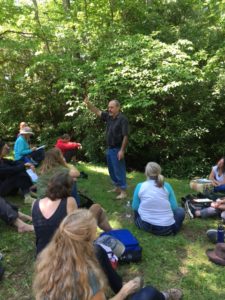 10:00 AM – 3:00 PM
10:00 AM – 3:00 PM
Ethnobotanical and Native Plant Field Study ($79)
David Winston, RH (AHG)
Limit: 35 people
Sorry, this session is now full!
This field study has become a treasured annual institution at Medicines from the Earth. Join this perennial outdoor favorite for a day with David Winston examining the unique flora of the southeastern mountains and hearing stories of creation and the origin of medicine. Discover how the medicine, food and useful materials provided by the plants have nurtured the Native peoples and Appalachian settlers for millennia. Explore the healing power of the herbs, the water, the earth, the trees, and how you can make them a part of your life. This event fills every year, so please register early! Limit 35 participants.
CE NOTE: Approved by NCCAOM for 5 hours of continuing education credit for acupuncturists. Sorry, but OBNM and AAFP do not grant CME credits for herb walks and field studies.

1:00 PM – 5:15 PM
Pre-symposium Intensive: Optimizing Physical Performance and Recovery with Botanicals ($89)
Donald Yance, CN, RH (AHG)
This intensive gives us wide ranging insights into the specific herbs, botanical formulas and nutritional compounds that can:
1. Enhance and sustain energy and endurance, reduce fatigue and maximize energy transfer.
2. Manage anabolic states to gain lean muscle mass and reduce body fat.
3. Shorten recovery and reduce the buildup of toxic waste substances, inflammation, and
the oxidative stress that can result from intense training,
4. Balance endocrine hormones while aiding in the removal of negative hormones and hormone-metabolites such as estrogen and excess insulin.
5. Improve overall health and well being, giving support to the heart, liver, kidneys, immune and digestive systems. (Athletes often have poor immune systems and reduced levels of glutathione, the body’s most important antioxidant)
6. Aid in stress resistance and build stress defense. Stress is a major contributor to diminished performance and injury.
7. Reduce risk of injury, muscle fatigue and cramping.
8. Maintain high performance with age.
Symposium Schedule
Please note the new schedule beginning Friday, May 17 at 6:30 PM!
The main symposium begins on Friday evening. All events listed below, including the reception and keynote, are included in the basic registration fee. Schedule subject to minor changes.

Friday, May 17
6:30 PM – 7:30 PM
Welcome Reception with music
Come join the fun! Joe Hallock & friends will play old-time music.
7:30 PM – 8:00 PM
Opening meeting with speaker introductions
Meet the weekend’s speakers and find out more about them
Invocation: Jamie Marie Spears, Cherokee Nation
8:00 PM – 9:30 PM
Keynote Address: Inspired by Herbs—The Herbal Journey of a Modern Day Herbalist
Mary Bove, ND
At a young age I heard a calling and felt a bond with plants, particularly herbs. They showed up in many places sneaking into my life in a quiet silence. Medical herbalist, midwife and doctor shares stories, lessons, and herbal insights from a life entwined with herbs.

Saturday, May 18
(Concurrent lectures–choose one–no need to sign up in advance.)
9:00 AM – 10:30 AM
The Dementia Epidemic: Evolution, Causes and the Role of Botanical Medicine
Jason Miller, DACM, LAc
In recent years, technological advances have increased human life expectancy across the world. However, our increased lifespan has not equated to an increase in our healthspan. In this lecture we explore the relationship between our minds, our microbiota, and the ecological networks that we live in to help us uncover some of the key physiological mechanisms underlying the development of mild cognitive impairment and the 4 most common forms of dementia: Alzheimer’s disease, vascular dementia, dementia with Lewy body, and frontotemporal dementia.
We also dig into the powerful role that botanical medicine has to play in the management of the dementia epidemic. Combined with nutrition, lifestyle, dietary, and spiritual medicine, it is an essential part of both the prevention and treatment of cognitive decline, as well as a synergistic therapeutic strategy that can work in concert with symptomatic pharmaceutical medications.
Lobelia: A Classic Respiratory Herb Matures into the Modern Era
Jillian Stansbury, ND
Lobelia is classic folkloric herb that continues to be explored for new applications. This session will focus on the current research on lobeline for smoking cessation and for the treatment of amphetamine, alcohol and other addictive disorders. Lobeline has a narrow therapeutic window due to the well-known emetic effects, however small doses may synergize the efficacy of other herbs in the treatment of respiratory and addictive disorders. Lobelia may even be indicated in some types of cancers by supporting chemotherapy drug activity. This session reviews some classic Lobelia formulas, the topical application of Lobelia for respiratory disorders, and reviews the ongoing research on lobeline for neurotransmitter affects, addictive disorders, and possible new drug development.
Appalachian Herbal Tonics
Rebecca Beyer
What do vinegar, spicebush and sassafras all have in common? They are all a part of the tradition of Spring tonics and tonic medicines in Appalachian Folk Medicine. We’ll explore a variety of Appalachian folk medicinal tonics and discover the fascinating history of this seasonal practice that never truly left us.
Herb Walk
Doug and Todd Elliott
Whether pointing out poison ivy, pontificating on poke sallet, crooning about creasy greens, jiving about ginseng, or extolling the virtues of dandelions, these herbalists, authors, and storytellers will delight and amaze you with their broad, practical, scientific and cultural knowledge of the area’s many useful wild plants. Doug has been leading his special brand of herb walks at this event for over 25 years and we welcome him back for another in-person fun fest, joined again this year by his son, Todd.
11:00 AM – 12:30 PM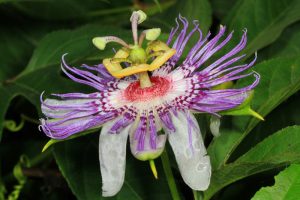
Naturopathic Considerations for Nerve Injury and Repair
Kenneth Proefrock, NMD
This presentation takes a deep dive into the process of myelination and the myriad ways in which nutritional and botanical medicine interventions affect the production and function of myelin. This includes a discussion of what is myelin, how is it made and what is it made from, as well as how it functions in the nervous system. We also include a discussion of phospholipids and sphingolipids, with a sidestep into liposomal technology and how to incorporate liposomal formulations into the modern practice of clinical herbalism. Nutritional and botanical agents to be discussed include Ginkgo, Hericium, Cannabis, Scutellaria spp, Sceletium, Acorus calamus, Vinca spp, phosphatidylserine, inositol, cetyl myristoleate, acetyl-L-carnitine, centrophenoxine, L-threonine and the pharmaceutical agents amantadine, selegiline, levetiracetam, amitriptyline, and doxepin.
Thyroid Health: Zeroing in on Two Common Thyroid Conditions
Mary Bove, ND
The thyroid gland plays a major role in health and well-being from childhood through the senior years. Two common thyroid conditions that affect many of the population are sub-clinical hypothyroidism and Hashimoto’s autoimmune hypothyroid. This lecture examines the contributing factors leading to thyroid and immune dysfunction, connecting the dots to strategize a therapeutic plan. Review pharmaceutical, botanical, nutritional and lifestyle therapies for managing thyroid health.
Little Known Medicines of the Southern Forests and Fields
David Winston, RH (AHG)
The Southeastern US is one of the most botanically diverse parts of North America. Many plants from this region are still used by SE Native people, and were used by our western herbal ancestors, the Thomsonians, Physiomedicalists and Eclectic Physicians. Some of the plants they commonly used such as Goldenseal, Black Cohosh, Bloodroot, Saw Palmetto, Passionflower, Witch Hazel and American Ginseng are well known, but many others have been forgotten or neglected in our modern era.This is unfortunate since these plants are often abundant, locally available and they can provide powerful medicines to help with many of todays medical issues. In addition we will look at some of the invasive plants that have made the southeast their home and how we can use them for medicine as well.
Plant Walk: Establishing Plant Relations
Kat Maier, RH (AHG)
This experiential class teaches simple methods for developing intimate relationships with the plants around us. We employ techniques such as wide angle vision, sketching, organoleptics, journaling, and other methods in order to understand the depth of the relationships that are available to us with plants. We also pay tribute to Goethe and his study of plant morphology.
2:00 PM – 3:30 PM
The 4 Horsemen of Chronic Disease: Assessing and Managing the Complicated Case, Pt 1: Stress and Chronic Infection
Jason Miller, DACM, LAc
Chronic diseases are responsible for a majority of mortalities in the US. They stem from neuroendocrine system breakdowns, immune dysfunction and tissue damage, and include heart disease, cancer, stroke, diabetes, Alzheimer’s disease and autoimmune conditions. In part 1 of this two-part series, we discuss the central and interconnected roles of stress and chronic infections as drivers of chronic disease. Stress is the central force in chronic disease, as it weakens our adaptive capacity, leaving us more susceptible to the host of causative factors that contribute to chronic disease, including chronic infections. Chronic infections, which are more aptly termed microbiota imbalances or microbiota disruptions, can happen in the bacteriome, the virome, or the fungal microbiome, or from parasites. Often multiple infections happen simultaneously, contributing to a greater challenge to the immune system, and complicating the presentation. We discuss how to accurately identify the issues, both at the molecular and symptom levels, and how to build effective strategies for addressing them. In addition to botanical and nutritional medicine, we will also cover general guidelines and lifestyle additions, specific dietary approaches, spiritual practices, and other forms of energy medicine (i.e. vagal stimulators, neurofeedback, PEMF, etc.)
African American Herbalism: A Practical Class on Healing Plants and Folk Traditions
Lucretia VanDyke, Herbalist
This lecture provides a deeper look into African American history and use of herbalism. Participants will dive into the role of the “Granny midwife” as the center of community health and wellness in order to understand the importance of the practitioner in their own communities. We will review the African American influence on holistic health protocols through food, herbs, and lifestyle from an integrative perspective. We will discuss native herbs such as Sassafras Presl. (Lauraceae) and American Pokeweed (Phytolacca americana L.) while reviewing foraging techniques to provide more information on ethical sourcing and how to implement them into your clients lifestyle. We will utilize historical as well as fact based research information for this class and will provide a better understanding for providing care for the underserved as well as key factors on working with clients of different racial backgrounds.
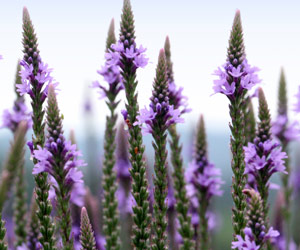 Foraged Foods as Medicine: From Garden Weeds to Table (Demonstration)
Foraged Foods as Medicine: From Garden Weeds to Table (Demonstration)
Teresa Boardwine, RH (AHG)
As we forage for food from our gardens and forest edges, or ecotones, we invite the wild to nourish us. We will identify plants in the local terrain that are considered weeds and discuss their nutrients and actions that promote health. This is an exciting act of sustainability and self-reliance. To be able to craft some of our common favorite herbs into delicious recipes which offer medicinal benefits can bring health and joy. Demonstration of some tasty treats include: Burdock fries, Dandelion roasted root toddy, Chickweed pesto, Cream of Nettle soup and Elderflower fritters with Redbud & Violet Syrup.
Plant Walk with a Clinical Focus
7Song
Explore the clinical and medicinal uses of the plants surrounding the conference center. We look at how these plants can be used for both acute and chronic health issues, the principles of ethical wildcrafting and the best medicine preparation for each plant.
4:00 PM – 5:30 PM
Saturday Panel Discussion: Hypercholesterolemia: Comparing Efficacy and Side Effects of Pharmaceuticals and Botanicals
Panelists: Jason Miller, DACM, LAc, Jillian Stansbury, ND and Donald Yance, CN, RH (AHG)
The debate continues over optimum blood lipid readings and how to address them. This panel describes the most effective testing and optimal lipid readings, the pharmaceuticals most commonly used and their side effects, and how to bring cholesterol back into balance with other protocols including botanicals, nutrients and lifestyle.
7:30 PM – 9:00 PM
Herbal Stories and Songs with Teresa Boardwine, RH (AHG)
Fireside program in amphitheater
Stories of healing from the last few years. Songs inspired by plants and the natural world to build community and support personal healing. Come to tell a story of healing, sing a song, or just be.

Sunday, May 19
Parasites: The Devil Inside
Kenneth Proefrock, NMD
Parasitic infections pose significant health challenges globally, particularly in impoverished regions. We explore historical and botanical interventions alongside pharmaceutical treatments, while recognizing the need for balance between efficacy and microbiome impact. Anti-parasitic drugs and herbal regimens are more popular than they ever have been, and we explore the efficacy of these protocols, based on the life cycle of the identifiable infective agent. Botanicals addressed include the chemistry of tropane alkaloid containing plants like Datura and Belladonna, as well as cholinergic plants like Pilocarpus, Areca catechu, Piper betel, and Nicotiana spp. We also discuss Juglans niger, Syzigium, Berberis/Algerita/Mahonia spp, Artemisia spp, Castela spp, and Triphala.
It Hurts to Move: Herbal and CAM Treatment of Back Pain and Fibromyalgia
David Winston, RH (AHG)
Chronic back pain is very common, it is the leading cause of missed work in the US and can make getting out of bed miserable. Fibromyalgia causes chronic muscular pain, but is under treated, poorly understood and orthodox treatment options are limited. In this class we will discuss the herbal, nutritional, bodywork and mind/body therapies I have used successfully with my patients for over 40 years that can offer real benefits for both conditions, allowing for better movement, improved flexibility, quality of life and more pain-free days. Note: there is a part of this class that talks about orthodox pharmaceuticals used for back pain and fibromyalgia (for pharm D).
Tree Medicine: Sentient Beings and Allies for Life
Teresa Boardwine, RH (AHG)
Learn how to build a relationship with trees as allies in healing by exploring and identifying the trees in your area. We discuss how trees communicate, and that will lead to a better understanding of trees as sentient beings. We honor the medicinal legacy of their bark, seeds, fruits and roots, and how they support our journey by providing oxygen, shade, leaf litter, canopy for many organisms and food for a multitude of species. The understanding of tree medicine helps us to formulate herbal products to support health, vitality, and balance. You will have a chance to taste some favorite recipes of tree medicine that include; Black Walnut liqueur, Pine Cone syrup and Wild Cherry bark cough syrup. Thank you, Trees!
Herb Walk
Doug and Todd Elliott
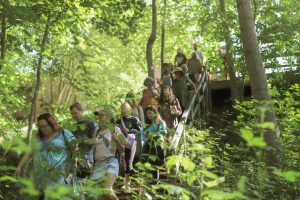 Refresh yourself in the forests of Blue Ridge Assembly with Doug and Todd Elliott, the consummate storytellers, entertainers and musicians. Scientific medicinal plant information and folklore are combined in a seamless whole in this walk on the wild side! Join them in one of their favorite stomping grounds, finding botanical treasures at every turn, growing in wild abundance in the fields and forests of Blue Ridge Assembly.
Refresh yourself in the forests of Blue Ridge Assembly with Doug and Todd Elliott, the consummate storytellers, entertainers and musicians. Scientific medicinal plant information and folklore are combined in a seamless whole in this walk on the wild side! Join them in one of their favorite stomping grounds, finding botanical treasures at every turn, growing in wild abundance in the fields and forests of Blue Ridge Assembly.
11:00 AM – 12:30 PM
The 4 Horsemen of Chronic Disease: Assessing and Managing the Complicated Case, Pt 2: Environmental Toxins and Nutrient Deficiency
Jason Miller, DACM, LAc
In part 2 of this 2-part series, we explore the interconnected roles that environmental toxins and nutrient deficiency play as drivers of chronic disease. We discuss how to evaluate the presence of environmental toxins and how to address them with botanical medicine therapeutics. Special attention will be given to the most common agents seen in the clinic today, and how they promote the chronic disease process (including heavy metals, endocrine disruptors, pesticides and solvents). In addition, nutrient deficiencies are a growing problem worldwide with Vitamin D, zinc, magnesium, selenium and B12 being among the most prevalent. We give special attention to the most common nutrient deficiencies seen in the clinic today, how they contribute to the chronic disease process, how to effectively test for them, and how to address them. The combination of environmental toxins and nutrient deficiency is wreaking havoc on our physiology. Based on our evaluation and findings, we will be equipped to put together a comprehensive plan that uses a multi-toolbox approach to address some of the most challenging chronic disease cases.
Botanical Analogs for At-Risk Medicinals
Kat Maier, RH (AHG)
United Plant Savers (UpS) has created the invaluable “At-Risk” Tool, which is based on various relationships that we humans, as well as ecosystems, have with the plants. After reading the list, students always ask, “Well, what can we use in its place?” Often times the choice is simple: choose a cultivated species rather than one harvested from the wild. When cultivated species are not available, then it is best to find a plant analog; one having a parallel action, function or end result compared to the herb you want to save. In most instances, it is important and necessary to use a variety of analogs for the at-risk herb because an analog generally satisfies only some of the therapeutic actions of a particular plant species and does not demonstrate all medicinal actions of that plant. It is sometimes difficult to find replacements for our tried and true herb friends, but it also can be very satisfying and will expand your expertise, while helping to replant our future.
Wild Fruits of the Fields and Forests (Demonstration)
Vickie Shufer, MA
Fruits are the seed-bearing parts of plants and include berries, legumes, seeds, and nuts. Discover the abundance of wild fruits growing in our fields and forest that are edible and provide health and medicinal benefits. Find out how to prepare them in ways that are tasty and nutritious. Samples will be available for tasting.
Plant Walk with a Botanical Focus
7Song
On this plant excursion, we focus on the botanical characteristics of the plants in the wild. We look at their flowers, leaves, and other plant parts and discuss why they fit into a particular family, genus and species and ways to identify them. We also describe the medicinal and other uses for these plants.
2:00 PM – 3:30 PM
Botanicals that Provide Most of the Chemotherapeutic Drugs in Cancer Care
Donald Yance, CN, RH (AHG)
65% of chemotherapeutic agents either come from a plant or have been molecularly compounded based on a plant compound. This presentation reviews the search for cancer drugs in the plant world, taking a detailed look at several plants that have been used to create chemotherapeutic drugs. The discussion includes the difference in action between an isolated constituent and a whole plant extract, and how to combine the whole plant medicine with the chemotherapeutic agent.. We also address metronomic chemotherapy: what it is and why it is often the best option for treatment, even though it is seldom used.
Glutamine/Glutamate Dysfunction and Common Neurological Conditions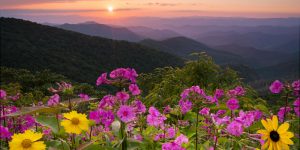
Jillian Stansbury, ND
Glutamate dysfunction is noted to contribute to neurologic disorders including Alzheimer’s, Parkinson’s, Depression, Epilepsy, Stroke and more. Naturally occurring molecules in herbal medicines can prevent glutamate-driven inflammatory and excitatory states. This session will review herbal medicines capable of reducing excessive glutamate synthesis and release, of optimizing the expression of glutamate receptors in ionotropic and metabotropic tissues, and of enhancing glutamate transport and clearance from sensitive neurons. We will review classic TCM formulas for neurologic conditions and Western Herbs for a variety of neurologic disorders that work, in part, via effects on glutaminergic neurotransmission.
Herbal Skin Care Preparations (Demonstration)
Lucretia VanDyke, Herbalist
In this class we will span the globe for botanical based beauty recipes from Asia to my family secrets from the mountains of North Carolina. Learn how to use what’s in your kitchen and the garden to craft skin/body care. We will explore acupressure face massage for sinus and headaches, topical pain relievers, and herbal infused oils for specific skin types.
We will also look at the anatomy of the integumentary system and Chinese Face Mapping to explore what our skin is trying to say about our overall health on a deeper level. We will study the link between indigenous beauty rituals, herbs, and self care to help integrate a slow beauty routine that will help clients with their stress management. This presentation provides tools, practical knowledge, and resources that help clients with skin issues such as eczema, sunburn, acne, shingles, women’s health, and hormonal changes in the skin.
Outdoor Plant Walk: Food as Medicine
Marc Williams, MA
Food as medicine is a concept that is rooted in the healing systems of Ancient Africa, Greece, China, India, and others. It is well known that various compounds such as antioxidants and bitters are helpful in promoting overall health and well-being. Classes of plants, such as adaptogens, make up a large part of the current superfood trends in our society. While walking the grounds of the Blue Ridge Assembly we will participate in an overview of plants and fungi that are prime examples of how food can be medicine, as well as some fascinating stories of how these life forms and humans have interacted over time.
4:00 PM – 5:30 PM
Panel Discussion: The Challenges of Climate Change in Clinical Practice
Panelists: Kenneth Proefrock, NMD, Kat Maier, RH (AHG) and Lucretia VanDyke, Herbalist
As the climate warms and changes, it also changes the conditions we are seeing and the therapies we are using. We discuss the effects of a warming climate on general and heart health, the neurological implications of increasing stress from environmental impacts such as wildfires and flooding, and how this affects local communities throughout the US, especially in disadvantaged areas. We also talk about the changing landscape of botanicals available in our bioregion, and how vital it is to support each other and our patients during this time of change.
Online
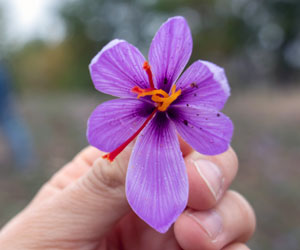 Online Intensive: Natural Treatment of Prostate Conditions: Blending Western Herbal Practice, Traditional Chinese Medicine, and Pharmacy
Online Intensive: Natural Treatment of Prostate Conditions: Blending Western Herbal Practice, Traditional Chinese Medicine, and Pharmacy
Eric Yarnell, ND, RH (AHG)
Prostate problems are extremely common and highly amenable to natural prevention and treatment.
-
- Benign prostatic hyperplasia (BPH) is experienced by the majority of men to varying degrees. We discuss how to assess the severity and type of BPH, choosing the most appropriate therapeutics, including when it is necessary to use drugs or refer for surgery (including what types of surgery are best).
- Chronic prostatitis and pelvic pain are also extremely common, but little discussed. We review various theories of how these conditions arise, and especially debunk the widespread belief that infections always underlie this condition.
- We will then review prostate cancer. We start with a condition that doesn’t really have a name but is currently mislabeled as low-grade, localized prostate cancer. This unnamed condition especially will be addressed with an eye toward avoiding the vast overtreatment that currently occurs in conventional medicine. Next we delve into established prostate cancer and the power of a combination of natural and conventional therapies, including the many new conventional options for focal (vs. prostate- or even pelvis-wide) treatment.
- Finally we discuss issues around the prostate in trans feminine people who still have prostates.
- Case studies are used as illustrations throughout.
Symposium Speakers and Topics
(Subject to minor changes)
7Song
7Song is a clinical herbalist, teacher, botanist and naturalist. He is the primary teacher at the Northeast School of Botanical Medicine, which he started in 1992 in Ithaca, NY. He is a founder and clinical herbalist at the Ithaca Free Clinic, a free integrative clinic that opened its doors in 2006. 7Song began studying herbal medicine and plants in 1981 and continues to study and learn the multiple avenues that plants can be helpful in health. He feels that it is important that herbalists and herbal medicine be accessible and available to all people and communities. He can often be found in fields, bogs, and forests, identifying and photographing plants and critters. More about 7Song.
Presentations:
1. Plant Walk with a Clinical Focus
2. Plant Walk with a Botanical Focus
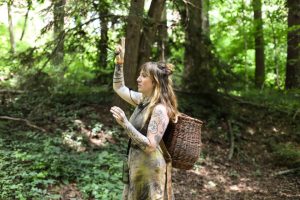
Rebecca Beyer, Herbalist
Rebecca Beyer is the woman behind the Blood and Spicebush School of Old Craft. She lives in the mountains of Western North Carolina, where she manages a homestead and teaches traditional witchcraft, foraging, and Appalachian folk medicine. She has a BS in Plant and Soil science from the University of Vermont and a Masters in Appalachian Studies and Sustainability, concentrating in Appalachian Ethnobotany at Appalachian State University. She is also a member of the Association of Foragers. She spends her days trying to learn what her ancestors did and finding ways to share traditional skills while tackling cultural appropriation and the complexities of living in the modern world. More about Rebecca Beyer.
Presentations:
1. Appalachian Herbal Tonics
Teresa Boardwine, RH (AHG)
Green Comfort School of Herbal Medicine in the Blue Ridge Mountains of Virginia, is where Teresa Boardwine offers classes, consultations, and online access to her workshops. She has been teaching her hands-on medicine-making classes for over 25 years, and just graduated her largest class of students in the fall of 2023. More about Teresa Boardwine.
Presentations:
1. Trees as Sentient Beings and Medicinal Allies for Human Ailments
2. Food As Medicine: Garden Weeds and Forest Floor to Table (Demonstration)
Mary Bove, ND
A clinical medical herbalist, Mary Bove, ND, had a practice in family medicine in Brattleboro, Vermont for over 20 years, where she assisted at the birth of a whole generation of children. Once a full-time faculty member at Bastyr University, Dr. Bove chaired the departments of Botanical Medicine and Naturopathic Midwifery. She is the author of An Encyclopedia of Natural Healing for Children and Infants, and co-author of Herbs for Women’s Health. More about Mary Bove.
Presentations:
1. Keynote Address: Inspired by Herbs: The Herbal Journey of a Modern Day Herbalist
2. Thyroid Health: Zeroing in on Two Common Thyroid Conditions
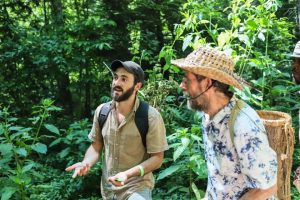
Doug Elliott and Todd Elliott, PhD
For many years Doug Elliott earned his living as a traveling herbalist collecting and selling herbs, teas and old-time remedies. Along with healing plants, Doug searches out old-timers and elders from various cultures. From these bearers of tradition, he has assembled an extensive body of knowledge of the botanical aspects of plants, their history, legends, and lore, their uses in various cultures, medicinal properties, food value, as well as other practical ways we can use wild plants every day. More about Doug Elliott.
Not surprisingly, Doug’s son Todd Elliott has had a passion for the natural world since childhood, which led him to co-author his first peer-reviewed scientific publication by age 14. His ongoing studies of global biodiversity and interrelationships in nature have taken him to remote corners of the world on six continents. Todd has collaborated on many publications covering this research, and his book Mushrooms of the Southeast (USA) was released in 2018. He received his PhD from the University of New England (Australia) on the role of macrofungi in vertebrate diets.
More about Todd Elliott.
Presentations:
1. Saturday Herb Walk
2. Sunday Herb Walk
Kat Maier, RH (AHG)
A practicing herbalist for over twenty years, Kat Maier is currently director of Sacred Plant Traditions in Charlottesville, Virginia where she offers a three-year clinical/community herbalist training program, and runs an herbal free clinic. She began studying plants in the Peace Corps in Chile. More about Kat Maier.
Presentations:
1. Botanical Analogs for At-Risk Medicinals
2. Plant Walk: Establishing Plant Relations
3. Sunday Panel Discussion: The Challenges of Climate Change in Clinical Practice
Jason Miller, DACM, LAc
Jason Miller, DACM, LAc, practices botanical and nutritional medicine, acupuncture, and Asian bodywork at his clinic, Jade Mountain Medicine, in Ashland, Oregon. He received his master’s degree in Acupuncture and Oriental Medicine from the Oregon College of Oriental Medicine in 2005 and completed a postgraduate internship at the “House of Celebrity Doctors” in Nanjing, China. He earned his Doctorate of Acupuncture and Chinese Medicine from the Pacific College of Oriental Medicine in 2018. His approach bridges the frameworks of traditional and modern medicine in the management of chronic disease. At Jade Mountain, he specializes in the management of cancer, diabetes and neuromuscular disorders. More about Jason Miller.
Presentations:
1. The Dementia Epidemic: Evaluation, Causes, and the Role of Botanical Medicine
2. The 4 Horsemen of Chronic Disease: Assessing and Managing the Complicated Case, Part 1: Stress and Chronic Infections
3. The 4 Horsemen of Chronic Disease: Assessing and Managing the Complicated Case, Part 2: Environmental Toxins and Nutrient Deficiency
4. Saturday Panel Discussion: Hypercholesterolemia: Comparing Efficacy and Side Effects of Pharmaceuticals and Botanicals
Kenneth Proefrock, NMD
A naturopathic physician practicing in Sun City, Arizona, Kenneth Proefrock specializes in difficult-to-treat conditions in his clinic, Total Wellness. He is the vice-president of the North American Board of Naturopathic Examiners and chair of the biochemistry portion of the naturopathic physician’s licensing exam. His lectures combine a detailed understanding of biochemistry and physiology with a passion for plant medicine. More about Kenneth Proefrock.
Presentations:
1. Parasites — The Devil Inside
2. Naturopathic Considerations for Nerve Injury and Repair
3. Sunday Panel Discussion: The Challenges of Climate Change in Clinical Practice
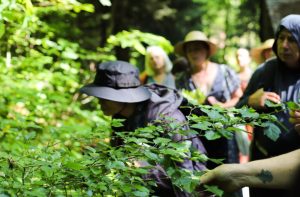
Vickie Shufer, MA
Vickie Shufer is an herbalist and forager with a Master’s Degree in Therapeutic Herbalism. She teaches classes on edible and medicinal plants, including medicine making and wild food cooking classes. She is the author of The Forager’s Handbook and The Everything Guide to Foraging and is the owner of Wild Woods Farm, a certified native nursery in southern Virginia Beach and northeastern North Carolina. The focus at Wild Woods Farm is on growing both native and cultivated medicinal herbs, and creating teas, vinegars and salves for healing. More about Vickie Shufer.
Presentations:
1. Wild Fruits of Fields and Forests (Demonstration)
Jillian Stansbury, ND
Jillian Stansbury is a naturopathic physician who has been practicing in SW Washington State for over 30 years, specializing in women’s health, mental health, and chronic disease. She holds undergraduate degrees in Medical Illustration and Medical Assisting and graduated with honors in both programs. She was the chair of the botanical medicine department at the National University of Natural Medicine for over 20 years. Jill has recently published five herbal formularies for health professionals, comprehensive, practical reference manuals for herbalists, physicians, nurses, and allied health professionals More about Jillian Stansbury.
Presentations:
1. Lobelia: A Classic Respiratory Herb Matures into the Modern Era
2. Glutamine/Glutamate Dysfunction and Common Neurological Conditions
3. Saturday Panel Discussion: Hypercholesterolemia: Comparing Efficacy and Side Effects of Pharmaceuticals and Botanicals
Lucretia VanDyke, Herbalist
With a journey that began when she was just a little girl mixing herbs, clays, and muds on her grandparents’ farm, Lucretia VanDyke has had a lifelong connection to plants. She’s been in the wellness industry for over 25 years, working as a holistic esthetician and educator. Lucretia has worked and trained with many internationally known spa and skin care companies. Her quest for knowledge and interest in the traditional approach to wellness has led her to training extensively in Southeast Asia, Thailand, and Bali. Lucretia focuses on integrating indigenous healing rituals, plant spirit medicine, holistic approaches to food/herbal medicine, ancestor reverence, and meditation into modern daily practice. More about Lucretia VanDyke.
Presentations:
1. African American Herbalism: A Practical Class on Healing Plants and Folk Traditions
2. Herbal Skin Care Preparations (Demonstration)
3. Sunday Panel Discussion: The Challenges of Climate Change in Clinical Practice
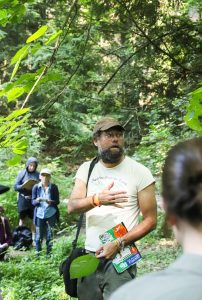
Marc Williams, MA
Ethnobiologist Marc Williams has taught hundreds of classes to thousands of people about plants, humans, other life forms and their interface. His training includes a B.A. in Environmental Studies/Sustainable Agriculture from Warren Wilson College with a minor in Business and a M.A. in Appalachian Studies/Sustainable Development from Appalachian State University with a minor in Planning/Geography. He has spent over 20 years working at various restaurants, farms, and travels throughout 30 countries in Central/North/South America, Europe and all 50 states in the USA. More about Marc Williams.
Presentations:
1. Outdoor Plant Walk: Food as Medicine
David Winston, RH (AHG)
David Winston is an Herbalist and Ethnobotanist with 54 years of training in Chinese, Western/Eclectic and Southeastern herbal traditions. He has been in clinical practice for 47 years and is an herbal consultant to physicians, herbalists and researchers throughout the USA, Europe and Canada. David is the founder/director of the Herbal Therapeutics Research Library and the dean of David Winston’s Center for Herbal Studies, a two-year training program in clinical herbal medicine. He is an internationally known lecturer and frequently teaches at medical schools, professional symposia and herb conferences. He is the president of Herbalist & Alchemist, Inc. a manufacturer that produces herbal products that blend the art and science of the world’s great herbal traditions. More about David Winston can be located at Herbal Studies.
Presentations:
1. Friday Ethnobotanical and Native Plant Field Study
2. It Hurts to Move, the Herbal and CAM Treatment of Back Pain and Fibromyalgia
3. Little-Known Medicines of the Southern Forest and Fields
Donald Yance, RH (AHG)
Donnie Yance, RH (AHG) is a clinical master herbalist and certified nutritionist who is internationally recognized for his comprehensive knowledge and understanding of the healing properties of plants and nutrition. Donnie conducts his clinical practice at the Mederi Center in Ashland, Oregon, utilizing his unique integrative model known as the Eclectic Triphasic Medical System, which he evolved over more than twenty years of successful patient care. More about Donald Yance.
Presentations:
1. Pre-symposium Intensive: Optimizing Physical Performance and Recovery with Botanicals
2. Botanicals That Provide most of the Chemotherapeutic Drugs used in Cancer Therapies
3. Saturday Panel Discussion: Hypercholesterolemia: Comparing Efficacy and Side Effects of Pharmaceuticals and Botanicals
Eric Yarnell, ND, RH (AHG)
Eric Yarnell is an associate professor in the department of botanical medicine at Bastyr University and chief medical officer at Northwest Naturopathic Urology. He is the author and co-author of numerous articles and books for practitioners including Clinical Botanical Medicine and Natural Approach to Gastroenterology. More about Eric Yarnell.
Presentations:
1. Post-symposium Intensive (Online): Natural Treatment of Prostate Conditions: Blending Western Herbal Practice, Traditional Chinese Medicine and Pharmacy
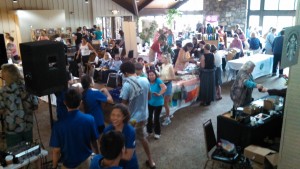
Are you interested in exhibiting at the conference?
A limited number of tables for exhibiting and selling products are available. Exhibitors have premium space in the lobby at Blue Ridge Center for 2024.
Please contact us and we will send information.
We look forward to seeing you in person in the Blue Ridge Mountains in 2024!



